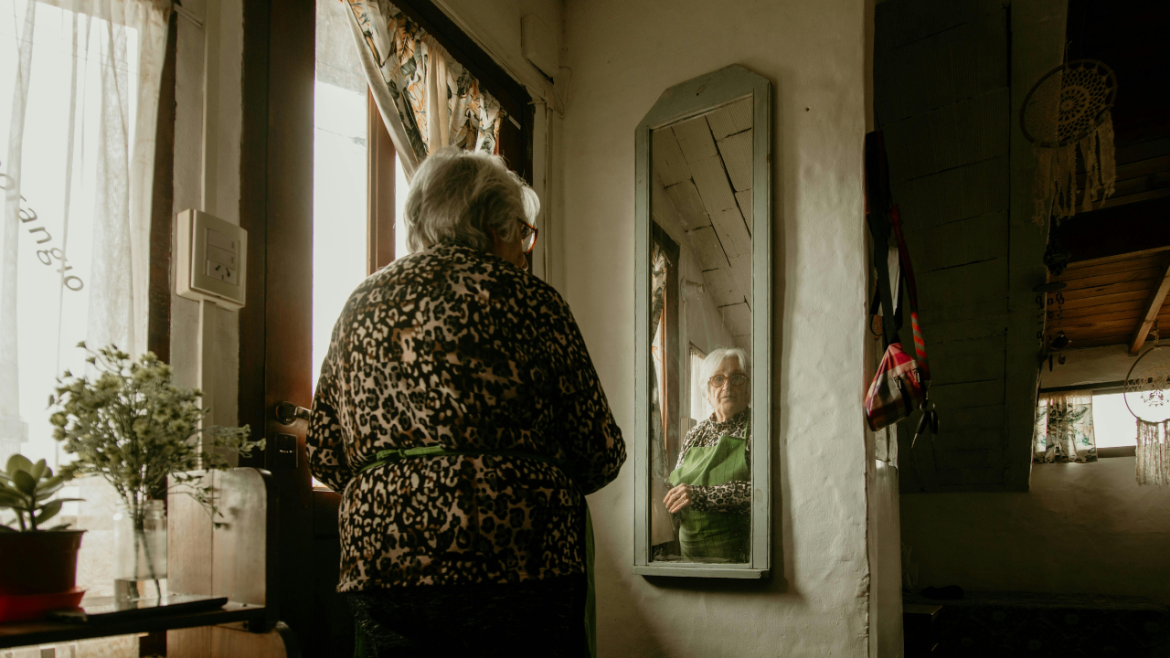Did you know that Leading Edge Senior Care has a Dementia Support Group? We meet monthly in Mesa. For more details <click here>
Why Do Dementia Hallucinations Happen?
Dementia affects millions of seniors worldwide, altering the way they think, remember, and perceive reality. One of the most distressing symptoms of dementia is hallucinations—seeing, hearing, or feeling things that are not actually there. These episodes can be frightening, both for the person experiencing them and for their caregivers. Understanding why dementia hallucinations happen can provide insight into how to manage them with compassion and patience.
Hallucinations occur in many types of dementia, but they are most common in Lewy body dementia, Parkinson’s disease dementia, and Alzheimer’s disease. While these hallucinations can be harmless, they may also cause significant distress. Caregivers must learn to recognize, respond to, and manage them in a way that reassures and comforts their loved ones.
How Dementia Affects Perception and Reality
The brain is responsible for processing sensory information and interpreting reality. Dementia disrupts this process, causing the brain to misinterpret signals. When neurons deteriorate, they struggle to process visual, auditory, and tactile stimuli correctly. As a result, the brain may create false images, sounds, or sensations, leading to hallucinations.
In the early stages, hallucinations might be mild, appearing occasionally without causing much distress. However, as dementia progresses, they can become more vivid and frequent. The hallucinations may involve seeing deceased loved ones, shadowy figures, or animals. Some individuals may hear voices or music that no one else perceives. Others may feel as if someone is touching them when no one is there.
These experiences can seem entirely real to the person with dementia, making it difficult to convince them otherwise. Rather than arguing or dismissing their fears, caregivers should approach the situation with empathy and calm reassurance.
The Role of Brain Damage in Hallucinations
As dementia progresses, certain areas of the brain experience more damage than others. The visual cortex, which processes sight, may deteriorate, leading to misinterpretations of objects and spaces. Shadows may be perceived as people, reflections in a mirror as strangers, and patterned floors as moving images.
The frontal lobe, responsible for logical thinking and reasoning, also declines in function. This makes it harder for a person with dementia to distinguish reality from imagination. When their brain tells them they see something, they believe it, even if it is not real. This neurological breakdown is why trying to convince them otherwise is often ineffective and may even cause distress.
Triggers That Can Worsen Hallucinations
Certain conditions and environmental factors can increase the likelihood of hallucinations. Poor lighting, overstimulation, or unfamiliar surroundings can contribute to sensory confusion. Dim rooms with shadows or loud background noises may cause the brain to fill in missing details with imagined sights or sounds.
Dehydration, infections, and medication side effects can also play a role. Urinary tract infections (UTIs), which are common in seniors, have been known to trigger confusion and hallucinations. Additionally, some medications for pain, anxiety, or Parkinson’s disease may have hallucinations as a side effect. If hallucinations become frequent or distressing, a doctor should review medications and overall health conditions.
Sleep deprivation is another factor that can worsen hallucinations. When seniors do not get enough rest, their brains struggle to process reality accurately. Those with dementia often experience disrupted sleep patterns, leading to increased confusion, especially in the evening.
How to Respond to Dementia Hallucinations
Reacting to hallucinations with frustration or disbelief can escalate the situation. Instead of correcting the person, caregivers should focus on offering comfort and reassurance. A gentle touch, a soothing voice, and a calm demeanor can ease their distress.
If the hallucination is not causing harm or fear, it may be best to acknowledge it without reinforcing it. Responding with phrases like, “I don’t see anything, but I’m here with you,” can help the person feel safe. However, if the hallucination is distressing, redirecting attention to a calming activity can be effective. Engaging in music, reminiscing about happy memories, or offering a comforting object can shift their focus.
When to Seek Medical Help
Occasional hallucinations are common in dementia, but frequent or distressing episodes may require medical attention. If a person becomes aggressive, paranoid, or fearful due to hallucinations, it is essential to consult a doctor. Changes in medication, worsening infections, or underlying conditions could be contributing to the problem.
A physician can assess whether adjustments in treatment, environmental modifications, or therapy may help. In some cases, medications specifically designed for dementia-related psychosis may be prescribed. However, these should only be used when non-medication approaches fail, as they come with risks.
Creating a Supportive Environment
Preventing or reducing hallucinations involves creating a safe and reassuring atmosphere. Keeping the home well-lit, minimizing clutter, and using soft background music can help prevent sensory confusion. Removing mirrors that may create frightening reflections and ensuring a consistent daily routine can provide stability.
Seniors with dementia thrive in environments where they feel secure. Familiar objects, predictable schedules, and trusted caregivers can make a world of difference in reducing distress. When hallucinations do occur, responding with understanding rather than fear can help ease their confusion.
Conclusion
Hallucinations in dementia are a result of neurological damage, sensory misinterpretations, and environmental triggers. While they can be unsettling, they are a natural part of the disease’s progression. Caregivers who remain calm, patient, and empathetic can help their loved ones navigate these experiences with less fear.
Understanding why dementia hallucinations happen allows families to respond effectively, ensuring their loved one feels safe and supported. Through proper care, a stable environment, and medical guidance, these episodes can be managed in a way that preserves dignity and comfort.

